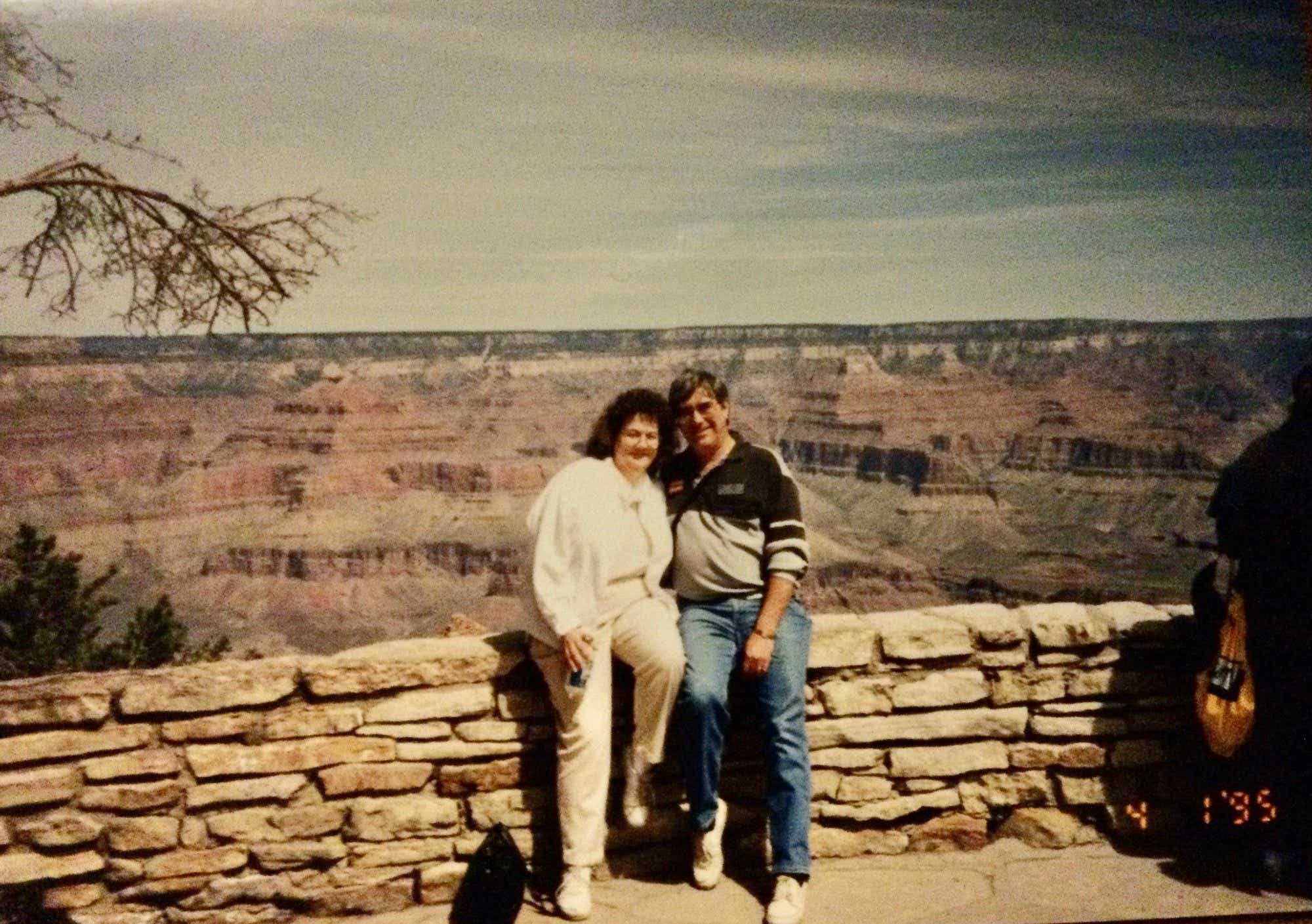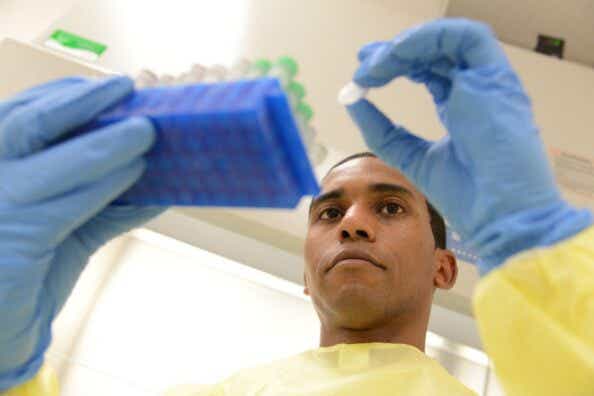Imagine a world where with one blood sample, your doctor could test you for a whole host of different cancers. What would that mean? A simple, non-invasive way to know what you might need to be treated for. Earlier detection of cancers that show little or no symptoms. Fewer late-stage diagnoses. Fewer cancer- related deaths. Sounds too good to be real, right? While it’s not yet available to the general public, this test is actually very real. And for Sue Johns, it may have saved her life.
In 2018, Sue, who has been a resident of Pennsylvania all her life, was considering retiring from her job working in Medicare counseling. She loved her job, but she wanted to take some time off to care for her mother, spend some time with her husband, and hang out with her daughter and grandson, who she calls “the love of my life.”

It was that year that she got an interesting postcard in the mail— it was for a new research study, and they were looking for women in Sue’s age group who would be willing to take a blood test to detect cancer. “I thought that sounded interesting,” Sue says, so she called and made an appointment.
The research study, known as the DETECT-A study, was conducted by Johns Hopkins University (JHU), Geisinger Health and Thrive, a company now owned by the cutting edge cancer research company Exact Sciences. This first of its kind study was conducted to determine the safety and performance of a new blood test called CancerSEEK, the brainchild of a group of cancer scientists from Dr. Bert Vogelstein’s lab at JHU. Dr. Isaac Kinde previously worked with Dr. Vogelstein, and is a co-founder of Thrive. In 2013 he was named as one of Forbes’ 30 under 30 for his work developing techniques to improve the accuracy of DNA sequencing technology, an important part of CancerSEEK. He has a Ph.D. in cellular and molecular medicine, and an M.D. from the Johns Hopkins University School of Medicine. But Dr. Kinde, who is currently Vice President of Technology Assessment for Thrive, would never tell you any of this himself. He is one of those rare breeds of genius who doesn’t seem to be in this for the accolades. “This is a passion,” says Dr. Kinde of his work in the cancer research field. “This isn’t something that you have to convince me to work hard on, because everyone has been touched by cancer.”
CancerSEEK is a blood test that, simply put, aims to detect a bunch of types of cancer all at once. You’re probably familiar with a mammogram or colonoscopy, which are reliable and invaluable methods of detecting breast and colorectal cancer. While these tests are fantastic at what they do, they only work to detect the specific cancers they were designed to detect. So what about the other types of cancer? Dr. Kinde explains, “There are two million cases of cancer each year in the US, but 70% of these cancers don’t have a screening test.” And even if there was a screening test for every type of cancer, that would mean you’d have to be in the doctor’s office all the time. Dr. Kinde and his team have been trying to solve this problem by figuring out how to test the one place that almost all cancers leave their mark: our blood. “Virtually all cancer releases signatures of itself into the blood. These signatures include circulating tumor DNA and elevated protein markers that are associated with cancer.” CancerSEEK analyzes blood for traces of these DNA and protein markers, and the results help determine if a patient might have cancer. Early data shows that CancerSEEK is able to detect most cancers. This includes some of the deadliest cancers like ovarian, lung, and pancreatic, many of which do not present symptoms until they are in very late stages.
In September of 2018, Sue went in for her first CancerSEEK blood test. At that point, she was working five days a week, and taking care of her mother on evenings and weekends. “I was very healthy,” says Sue. “I was very active, and I felt fine.” Soon after her first blood test Sue was called in for a second blood test, and was then told she would need a PET scan: “It was at that point that I figured oh wow, maybe they found something.” They had. Sue’s blood test results indicated that she may have cancer and the PET scan confirmed stage I uterine cancer. “You always think, ‘oh that sort of thing would never happen to me,’” says Sue. “But this time it did.”
After doctors confirmed the positive result of Sue’s CancerSEEK test, she was given a full hysterectomy to remove the cancer. Given the complications that could have arisen had her cancer been more advanced, she is grateful that the experience was relatively painless: “I went in for the surgery at 7 o’clock in the morning, and I was at home having lunch that same day. I didn’t need chemo. I didn’t need radiation. The cancer was detected early, and the surgeon got everything.”
According to Dr. Kinde, many patients with uterine cancer do show symptoms, but not all of them. It’s impossible to know whether Sue would have begun to show symptoms as her cancer progressed, or whether her cancer would have continued to grow or spread undetected. What matters though, says Dr. Kinde is “the sooner you detect any type of cancer, the better.”
Since the surgery, Sue has been going to Geisinger Health for a checkup every three months. Her next scan is in June, and if, like her previous scans, it comes back clear, it will mark two years that Sue has been cancer free. Besides having to take a daily estrogen blocking pill, her life has gone back to normal. “It’s incredible,” she says. “I feel so lucky.”
Sue was incredibly lucky. CancerSEEK is still in the final stages of development and then would require FDA approval before it can be made available to the general public, but the hope is that someday soon, a CancerSEEK test will be a standard part of every older American’s annual checkup. Of the 10,000 women in the DETECT-A study, 96 of them were diagnosed with cancer. Of these 96, more than half of them were detected by screening methods, either CancerSEEK or through standard of care screening. There were no adverse events as a result of the study, meaning that the test appears to be safe. Dr. Kinde adds, “Two thirds of the cancers we detected with our blood test were found in earlier stages. That gives patients the opportunity to have a much better outcome when treated.”
Sue hasn’t taken her diagnosis for granted— it’s helped her to realize the importance of spending more time with family. “Since this happened, my husband and I decided to set some time aside for us, so now we have date night every Wednesday. We’ve been married for 52 years.” She has also been spending more time with her daughter and grandson, who is now looking at colleges. “We’re all taking the time to do things we haven’t done in years. Whatever we do, we do it together.”
Written by Emily Pinto









